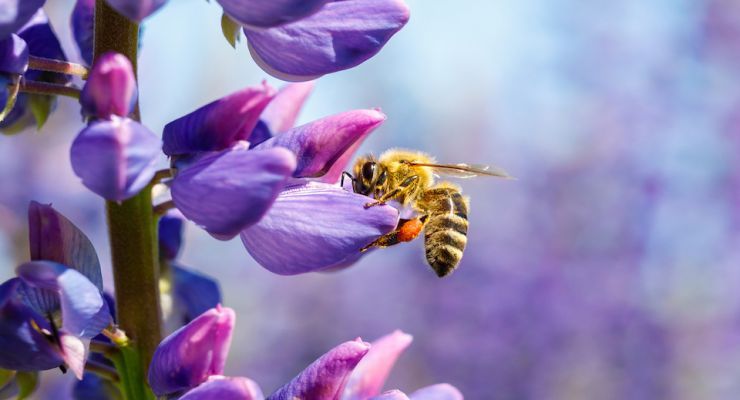Most of us have had at least one unfortunate encounter with the tail end of a bee. Often, it is easy to think of these flying insects as mere pests, or irritating creatures to keep away at all costs. We see…we swat. Making every effort to avoid bees and their painful stingers. However, bees are actually an essential part of our fragile ecosystem and should be protected whenever possible.
Though you may not have noticed their disappearance, others certainly have. Since the 1990s, beekeepers have noted a marked absence of honey bees due to bee-killing pesticides, lack of biodiversity, and the spread of industrial farming practices. These essential insects are responsible for pollinating ⅓ of the entire worlds food supply. Clearly, should the bees disappear entirely, there would be a massive upset in the ecosystem and a severe crop shortage.
Many scientists believe that the decline in the bee population indicates widespread environmental degradation. The rise of climate change is just one such concern among researchers studying the planets’ trends. The disappearance of bees isn’t only a concern for the agricultural world but could be the inception of greater negative change.
So what can you do?
It isn’t just up to the industrial farmers to change their dangerous methods of pest control, or the beekeepers to raise awareness of the approaching crisis. You can take steps today to protect the bees in your local community and encourage them to visit your garden as a place of sanctuary.
Simply mix one tablespoon of white sugar with one tablespoon of water and leave it in a dish in your garden or yard. Proper nutrition is essential for bees to thrive, and though they can’t receive all the nutrients they need from sugar water, it can give them an important energy boost. Poor substance can lead to a weakened immune system in your striped friends, and make them less capable of fighting off disease and pesticides they may come in contact with.
With this seemingly insignificant act, you can help ensure the future of bees. It costs virtually nothing and will help protect the environment and the bees.
Other ways to support the bees
Shop organic: Buying organic and supporting your local farmers will help encourage pesticide-free crop practices and non-toxic plant management.
Avoid pesticides: Pesticides are never worth the cost. Getting rid of harmful pests is not worth the danger to the beneficial insects that visit your garden.
Plant flowers: Filling your garden with hundreds of colorful flowers and fragrant blooms will help attract bees. Be sure to plant flowers that bloom at various times throughout the season to give bees essential nectar and nutrients.
Buy raw honey: Not only is local, raw honey full of health benefits, but it also supports beekeepers in the area that are working to preserve natural hives.
Become a bee advocate: Start dispelling myths about bees by encouraging all your friends to place out sugar-water and avoid killing bees unnecessarily. Take steps today to intervene on behalf of the bees and raise awareness for the pollinators.
Let weeds live a little: Before automatically eradicating every single dandelion and clover from your immaculately groomed yard, allow these weeds to bloom as they act as important food sources for honeybees.
Plant trees: Bees don’t only feed on perennials. In fact, trees in bloom constitute the primary source of nutrients for most bees. Deforestation and lack of replanting affect the bee population in alarming ways. Get involved with your community to plant new trees today.
Start a honeybee hive: What better way to express your love for the bees and enjoy delicious raw honey? Contact your local beekeeping agency for more information on how to get started with beekeeping today.
Leave a land plot: Many bees nest in the ground and could benefit from a small plot of undisturbed, unplanted land to burrow and call home.
Financial support: If you are in an urban area, or find that you are unable to provide for the bees directly, there are many organizations that are working diligently to protect and conserve this vital species.
Do you know of any other ways to help save the bees? Let us know in the comments below.

